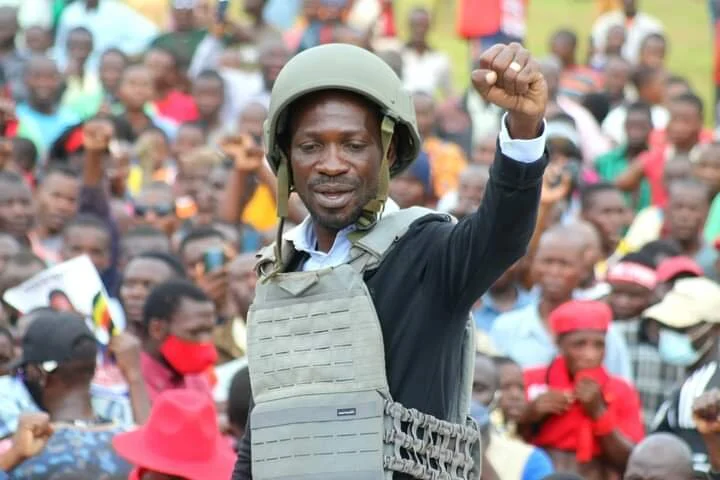They tried to kill Bobi Wine again.
This week, the military regime in Uganda opened fire on the campaign convoy of the country’s leading opposition candidate for president, striking and disabling his vehicle and hitting several of his colleagues, injuring among many others a good friend and music producer, as well as a Ugandan police officer who was part of his security detail.
Having the audacity to run for political office should not be the equivalent of a death sentence. Yet sadly, that seems to be the case in Uganda.
Bobi Wine, and his courageous colleagues, are no strangers to violence, of course. Nor are they unaccustomed to intimidation, arbitrary arrest and the state-sanctioned torture that often accompanies it. For years now, Wine’s colleagues and contemporaries have been brutalized by the state and suspected agents working on their behalf. The hit list, which includes elected members of parliament, like Francis Zaake and Betty Nambooze, is long and growing. Journalists and writers, student activists and women’s rights leaders have also been routine targets. And this repression has only escalated in recent months, with authorities often using covid-19 restrictions as a convenient excuse to inflict pain (in fact, this is a topic we covered, with Bobi Wine, on our first episode of our podcast, The Resistance Bureau).
It’s as if the regime of General Yoweri Museveni – who has been in power since 1986, longer than most Ugandans have been alive – will not relent until Bobi Wine has been silenced. The ominous tendency of the regime to rely on brute force, as opposed to decency and baseline respect for human rights, will only intensify in the lead up to a scheduled presidential election next month; an election in which Museveni and Bobi Wine – should he survive that long – will face off in the electoral ring.
I first met Bobi Wine in early 2018, in Washington, DC when we began working with him at Vanguard Africa. He arrived in town on crutches after being tortured in a Ugandan detention center. He was allowed to travel, having posted bail the previous week, and after being charged with treason by Ugandan authorities – an unresolved, spurious charge that still looms over his head. The incident that led to his arrest and subsequent torture at the hands of Ugandan security personnel, also included the killing of his personal driver and friend. Many of Wine’s colleagues suspect that he was the intended target. And they are probably right.
In the course of my work, I have found that elevating the profile of an activist or a political leader adds an additional layer of personal security; in turn, these individuals are much less likely to be detained for extended periods of time, or worse, disappeared or killed. As such, at Vanguard Africa we have worked for years with our partners around the globe – in the media, the pro-democracy and think tank communities, with online activists, and with government officials – to raise Bobi Wine’s profile, and in turn, amplify his vision for a better Uganda. In so doing, we hoped that we could help to keep him alive and fighting for another day.
This strategy has worked – so far. But it is clearly not enough.
General Museveni has taken the gambit that he can push the limits of his authoritarian grip on power to the absolute extreme. After all, he has not suffered any meaningful consequences during his nearly four-decade reign – a time period that spans six different U.S. administrations and routine visits to the White House under both Republican and Democratic presidents.
This week, in an op-ed for the Washington Post, I elaborated on what the U.S. Government can specifically do in order to begin the process of finally holding the Museveni regime accountable. Put simply, it is long past due for America to stop bankrolling and subsidizing Museveni’s brazen repression and the instability that it produces. Until that time, the already dire situation in Uganda will deteriorate further.
In the meantime, let us continue to raise our collective voices on behalf of, and stand in solidarity with, Bobi Wine and his brave colleagues. It may just help to keep them alive, as well as the flickering hopes of a more democratic Uganda.
Jeffrey Smith is the Founding Director of Vanguard Africa. You can follow him and Vanguard Africa on Twitter here: @Smith_JeffreyT, @VanguardAfrica

